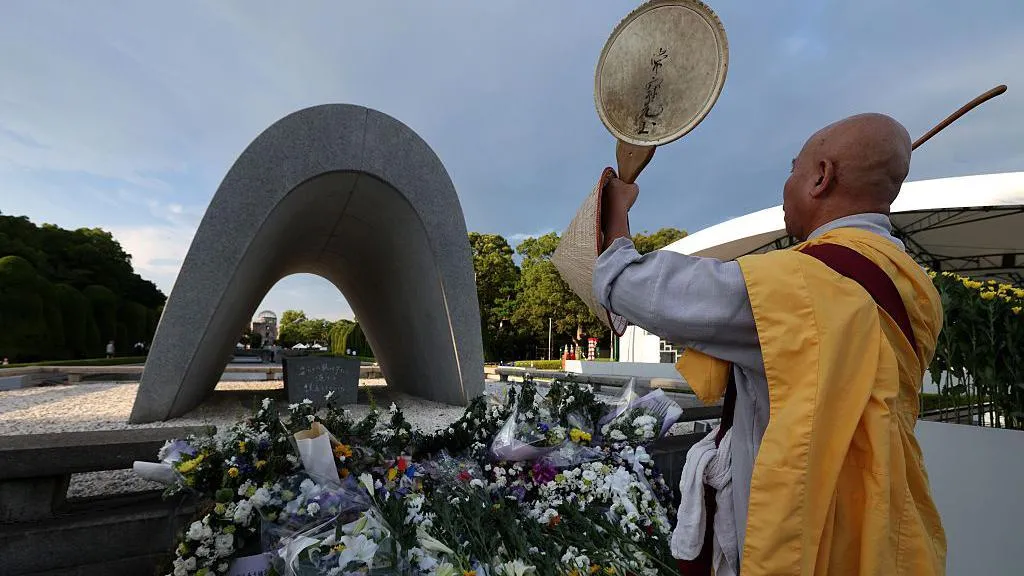On August 6, 2025, Japan held a ceremony to mark the 80th anniversary of the atomic bombing of Hiroshima with Prime Minister Shigeru Ishiba, foreign dignitaries, and survivors. There was a moment of silence for all those lives lost in 1945, when the U.S. dropped the first atomic bomb, resulting in more than 140,000 civilian deaths by the end of the year.
The bombing, followed days later by the bombing of Nagasaki, persuaded Japan’s surrender, and ended World War II. This event changed the direction of global geopolitics and ushered in the nuclear age, setting the table for the Cold War. In the aftermath, Japan adopted a pacifist constitution, and underwent massive reconstruction with the assistance of the Allied occupation. Hiroshima, destroyed at one time, has developed into a modern city and a peace city.
At the ceremony, Hiroshima Mayor Kazumi Matsui called for greater worldwide commitment to nuclear disarmament while urging caution about escalating military tensions and use of nuclear deterrence policies. The ceremony also echoed considerable debate within Japan regarding its security policy and nuclear posture, particularly in the context of the (current) international conflicts taking place in Ukraine and Gaza.

